In Addition
Vol 4 Issue 6
November/December 2013
Sai Vibrionics offers health information and articles for educational purposes only; this information is not meant as medical advice. Counsel your patients to see their medical doctor about their specific medical condition.
Health Benefits of Eating Seeds
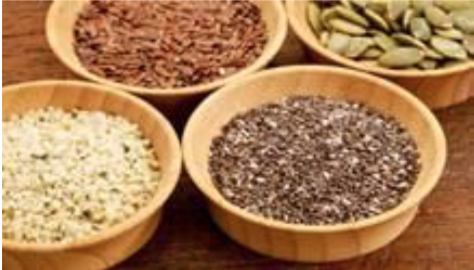
Seeds may be tiny but they're packed with nutrients like protein, fibre, iron, vitamins and omega-3 fatty acids.
Seeds come in all different sizes, shapes and colours. A plant goes to great lengths to produce each seed and fill it with high concentrations of vitamins, minerals, proteins, essential oils and dormant enzymes A seed is life. It is a living food. It is impossible to eat a raw seed and not derive nutrition. Many seeds are edible and the majority of human calories come from seeds, especially from legumes and nuts. Seeds also provide most cooking oils, many beverages and spices and some important food additives. In different seeds the seed embryo or the endosperm dominates and provides most of the nutrients.
Selection and Storage
Seeds are often sold in bulk, either with their hulls (shells) in place or with their kernels separated out. Make sure the seeds you buy are fresh. Because of their high fat content, seeds are vulnerable to rancidity. If they're exposed to heat, light, or humidity, they're likely to become rancid much faster. A quick sniff of the seed bin should tell you if the contents are fresh or not. Seeds that still have their hulls intact should keep for several months if you store them in a cool, dry location. Seed kernels (seeds that have had their shells removed) will keep for a slightly shorter period of time.
Preparation and Serving Tips
There is only one way to derive nutrition from seeds and that is to eat them raw. Once they are exposed to heat, they produce toxic substances and the vitamin, mineral and essential oil profiles are denatured. By roasting a seed, its classification moves from a living food to a dead food. There is no seed on earth that can withstand roasting or heating without breaking down its nutritional components. Always remember, eat seeds naturally...eat them raw. Choose unsalted seeds avoid coated or roasted seeds, avoid sugar coated seeds.
You can go overboard with seeds because of their high fat content. But, in moderation, seeds can be mixed with cereals or trail mix or eaten by themselves. A sprinkling of seed kernels over fruits, vegetables, pastas, or salads adds a touch of crunchy texture and flavour. Sesame seeds are especially attractive as toppers for breads, rolls, salads, and stir-fries.
Six Different Seeds: Pumpkin, Sesame, Sunflower, Flax, Hemp, Chia
1. Pumpkin Seeds
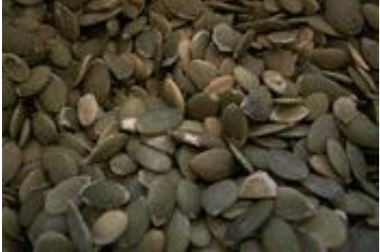
Pumpkin seeds are delicious and healthy. A handful of pumpkin seeds makes a delicious snack.
Some Health Benefits of Pumpkin Seeds
Pumpkin seeds are a rich source of magnesium which has been shown to benefit your blood pressure and help prevent sudden cardiac arrest, heart attack, and stroke. These seeds are a good source of zinc which is important for immunity, cell growth and division, sleep, mood, your senses of taste and smell, eye and skin health, insulin regulation, and male sexual function. It also fights osteoporosis. Like other raw nuts and seeds these seeds are one of the best sources of plant-based omega-3s (alpha-linolenic acid or ALA). Studies suggest that pumpkin seeds may help improve insulin regulation and help prevent diabetic complications by decreasing oxidative stress.
Pumpkin seed oil is rich in natural phyto-estrogens and studies suggest it may lead to a significant increase in good “HDL” cholesterol along with decreases in blood pressure, hot flushes, headaches, joint pains and other menopausal symptoms in postmenopausal women. This oil is found to exhibit anti-inflammatory effects and works as well as the anti-inflammatory drug Indomethacin in treating arthritis, but without the side effects. Healthy fats in pumpkin seeds provide benefits for heart and liver health, particularly when mixed with flax seeds. Eating pumpkin seeds a few hours before bed, along with a carbohydrate like a small piece of fruit, may be especially beneficial for providing your body the tryptophan needed for your melatonin and serotonin production to help promote a restful night’s sleep.
2. Sesame Seeds
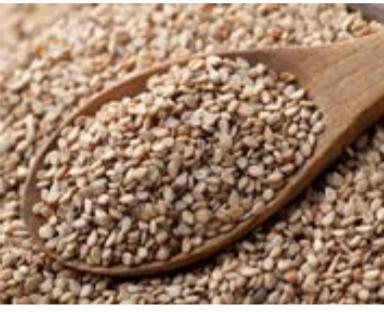
Sesame seeds are considered the most mineral-rich food in the world. It is rich in Calcium, Magnesium, Copper, Iron, Manganese, Zinc, Phosphorus, Vitamins including Vitamin B1, Zinc and fibre. Two tablespoons of sesame seeds have roughly less than 100 calories; are super low in carbohydrates; have 3 grams of protein, 2 grams of dietary fibre and 8 grams of fat; and offer about a quarter’s worth of the recommended daily value for calcium and iron.
Top Health Benefits of Sesame Seeds
Sesame seeds are a very good source of Copper which is reducing some of the pain and swelling of rheumatoid arthritis and provide structure, strength and elasticity in blood vessels, bones and joints. Magnesium in sesame seeds supports vascular and respiratory health in cases of asthma, stroke, and diabetic heart disease. Calcium helps prevent Colon Cancer, Osteoporosis, Migraine and PMS. Due to high content of Zinc sesame seeds, if eaten regularly, help improve bone mineral density. Phytosterols in sesame seeds help to lower Cholesterol.
3. Sunflower Seeds
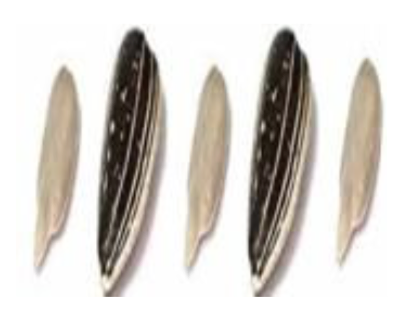
Sunflower seeds are rich in Vitamin E which can help the circulatory system perform better. It also has a calming effect on your brain because of high levels of tryptophan which creates a relaxing effect. Baking these seeds with a sprinkling of salt makes it crunchy and even more palatable.
Power of Sunflower Seeds
Sunflower seeds are a good source of heart-healthy fats and fibre, nutrients that can improve cardiovascular health and help manage blood sugar in people with type-2 diabetes. Sunflower seeds also contain Zinc and vitamin E, nutrients that help maintain healthy eyes, hair, and skin. Magnesium helps to calm nerves, muscles and blood vesselsand Selenium helpsin detoxification and cancer prevention.
Sunflower seeds in the shell are a smart snack option for people who are trying to lose or manage their weight, since removing the shell on each seed will slow down your eating. Like other seeds, sunflower seeds may trigger migraines and IBS in people who are sensitive to nuts and seeds.
4. Flax Seeds
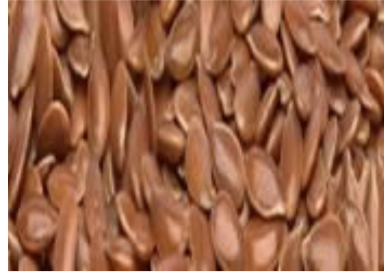
The main health benefits of flax seed are due to its rich content of Alpha-Linolenic Acid (ALA), dietary fibre, and lignans. The essential fatty acid ALA is a powerful anti-inflammatory, decreasing the production of agents which promote inflammation and lowering blood levels of C-reactive protein (CRP), a biomarker of inflammation. Through the actions of ALA and lignans, flax has been shown to block tumour growth and may help reduce cancer risk. Flaxseed is rich in both soluble fibre (which dissolves in water) and insoluble fibre (which does not dissolve in water). The fibre in flax seed promotes healthy bowel function. One tablespoon of whole flax seed contains as much fibre as half a cup of cooked oat bran. Flax’s soluble fibres can lower blood cholesterol levels, helping reduce the risk of heart attack and stroke.
Ground flax seed provides more nutritional benefits than does the whole seed. Grind the seeds at home using a coffee grinder or blender. Powdered flax seeds should be kept in the refrigerator and used within a few days.
5. Hemp Seeds
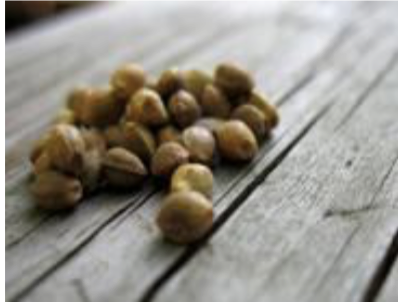
Hemp seeds are a wonder food - more than a super-food and everyone should have this magical little seed in their diet. Hemp seed is packed with a variety of vitamins and minerals such as vitamin E, Iron, Magnesium, Manganese, Zinc, Calcium, Phosphorus, Omega-3, Omega-6 and Copper. Like all seeds they are easy to include in your diet. To introduce them into your diet, at first try putting a tablespoon of hemp seed in your breakfast cereal, curry, smoothies, stews and salads, you can pretty much sprinkle them on anything. You will begin to notice the health benefits after just a few days.
Power of Hemp Seeds
Hemp seeds are truly a super food, as they are packed with an impressive list of nutritional attributes. Perfectly balanced with a three to one Omega-6 to Omega-3 oil ratio, they are also an excellent source of gamma Linoleic acid.
Containing 10 essential amino acids, hemp seeds are composed of over thirty percent pure protein, making them an excellent daily protein source. They are also composed of 40 percent fibre, the highest amount of any grain on earth! Also containing disease-fighting phytosterols, studies show that hemp seeds, or even hemp milk, support heart health and can provide nutritional support against many unpleasant diseases.
6. Chia Seeds
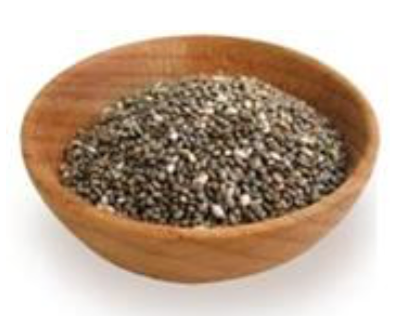
Chia Seeds originated in Mexico and Guatemala, Chia seeds were an important part of the Aztec and Mayan diets, both for energy and for medicinal use. Rather appropriately, the word 'Chia' is Mayan for strength. Chia seeds have a great many health benefits, making them an important and easy ingredient to get into the diet.
These small seeds are packed full of fibre, protein, nutrient oils, various antioxidants and even calcium. Chia seeds stabilize blood sugar, promote heart health, as well as increase weight loss. These amazing little seeds are an excellent source of high-quality fats, as they are made up of a whopping 34% pure Omega-3 oils. Soluble fibre in chia seeds stabilizes blood glucose. The soluble fibre also helps to clean out the colon, absorbing toxins as it passes through. The protein found in chia seeds is of a high quality and makes up approximately 20% of the seed, which is higher than many other plant based protein sources. Chia seeds do not contain plant oestrogen, so they do not mess with the body's natural balance.
Sources:
http://healthyeating.sfgate.com
http://www.care2.com
http://www.joybauer.com
http://www.webmd.com
http://www.onegreenplanet.org
http://www.medicalnewstoday.com
http://recipes.howstuffworks.com
http://articles.timesofindia.indiatimes.com
http://www.foxnews.com
http://www.emaxhealth.com
http://www.mensfitness.com
http://healthyeating.sfgate.com
http://www.gov.mb.ca
http://articles.mercola.com
http://www.whfoods.com
http://www.trueactivist.com
Vitamin B12: Benefits and Disease Prevention
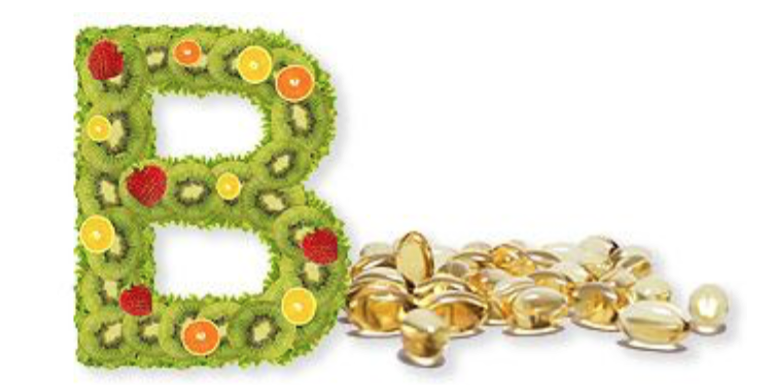
Vitamin B12 also called Cobalamin, is a water-soluble vitamin with a key role in the normal functioning of the brain and nervous system, and for the formation of blood. It is one of the eight B vitamins..
What is the function of vitamin B12?
Development of red blood cells
Most well-known function of B12 involves its role in the development of red blood cells. As red blood cells mature, they require information provided by molecules of DNA. Without B12, synthesis of DNA becomes defective, and so does the information needed for red blood cell formation. The cells become oversized and poorly shaped, and begin to function ineffectively, a condition called pernicious anaemia, which is explained later in this article.
Developing Nerve Cells
A second major function of B12 involves its participation in the development of nerve cells. A coating which encloses the nerves -- called the myelin sheath -- forms less successfully whenever B12 is deficient. Although the vitamin plays an indirect role in this process, supplementation of B12 has been shown to be effective in relieving pain and other symptoms in a variety of nervous system disorders.
Other Roles for Vitamin B12
Protein -- the component of food required for growth and repair of cells -- depends upon B12 for proper cycling through the body. Many of protein's key components, called amino acids, become unavailable for use in the absence of B12. Since one of the steps in carbohydrate and fat processing requires B12 for its completion, insufficiency of the vitamin can also affect the movement of carbohydrates and fats through the body.
Benefits at a Glance
Reduces Risk of Pernicious Anaemia
Pernicious anaemia is a condition that prevents your body from generating new healthy red blood cells. Without taking vitamin B12, there's a good chance that your body could get this condition and put your health in serious jeopardy. Getting regular doses of vitamin B12 helps prevent this from happening.
Enables Your Body to Grow and Develop Naturally
One of the most basic things that vitamin B12 does in your body is help it to grow as you develop and get older. In order to prevent stunted growth, vitamin B12 is a necessary vitamin that your body needs to have.
Maintains Energy Levels
If you find that you are always tired or you actually suffer from chronic tiredness, there's a good chance that you're not getting enough vitamin B12 in your diet. Vitamin B12 helps provide your body with energy.
Reduces Risk of Heart Disease
Taking vitamin B12 can help you to reduce the levels of homocysteine in your body. Homocysteine is one thing that can cause you to suffer from heart disease.
Supports Mental and Emotional Stability
Adding more vitamin B12 to your diet is good for your health, but it's also good for your brain. Studies have shown that vitamin B12 can actually improve your mental capacity and help you to stay stable emotionally.
How Vitamin B12 Works
Vitamin B12 acts differently than other vitamins. A substance called intrinsic factor, made in the stomach, must be present in the intestinal tract in significant amounts to allow for the absorption of B12. This factor combines with the vitamin B12 that is released from food during digestion. People who don’t have intrinsic factor eventually show symptoms of a vitamin B12 deficiency.
Symptoms of Vitamin B12 Deficiency
A deficiency of vitamin B12 can lead to vitamin B12 deficiency anaemia. A mild deficiency may cause only mild, if any, symptoms. But as the anaemia worsens it may cause symptoms such as weakness, tiredness or light-headedness, rapid heartbeat and breathing, pale skin, sore tongue, easy bruising or bleeding, including bleeding gums, stomach upset and weight loss, diarrhoea or constipation. Other symptoms may be dandruff, numbness or tingling in feet, depression, memory problems, decreased reflexes. If the deficiency is not corrected, it can damage the nerve cells.
Diet and Vitamin B12
Vitamin B12 is generally found in all animal foods (except honey). Contrary to the many rumours, there are no reliable, unfortified plant sources of vitamin B12, including tempeh, seaweeds, and organic produce. One of the earliest studies conducted on vegans, from the U.K. in 1955, described significant vitamin B12 deficiency in the vegans with some suffering from nerve damage and dementia. This, as well as many case studies since then of vitamin B12 deficiency in vegans, and a great deal of other evidence detailed here, has led to the overwhelming consensus in the mainstream nutrition community, as well as among vegan health professionals, that vitamin B12 fortified foods or supplements are necessary for the optimal health of vegans, and even vegetarians in many cases.
-
Milk, cheese and yogurt, can provide vegetarians with appropriate amounts vitamin B12. In fact, just one cup of plain yogurt provides approximately 25 percent of the recommended daily value of vitamin B12.
-
One hard-boiled egg contains approximately 0.7 mcg of vitamin B12, which is nearly 10 percent of the recommended daily intake.
-
A number of vegetarian and vegan foods, such as breakfast cereals, soy milk and yeast extracts, are available that contain vitamin B12.
-
Whey powder is now entering main stream as more people are going vegetarian. Whey powder is a common addition to breads and smoothies, 100 grams will provide 2.5 μg of vitamin B12 or 42% of the DV.
-
Yeast extract spreads are popular in Britain and Europe, and have started to gain popularity in the U.S. A good vegetarian source of protein, the spread also packs a lot of vitamin B12. One hundred grams provides 0.5 μg (8% DV) of vitamin B12, that is 0.03 μg (1% DV) per teaspoon.
Diagnosis
-
Standard blood tests to measure the level of red blood cells and check their appearance-- In vitamin B12 deficiency, red blood cells are unusually large and appear abnormal.
-
Blood tests to measure B12 levels — Levels of iron and folate also may be measured to check for deficiencies in these nutrients.
-
Blood test to measure methylmalonic acid level — The blood level of methylmalonic acid increases when a person has B12 deficiency.
-
Blood tests for intrinsic factor antibody — Special tests for antibody levels to determine if you have pernicious anaemia. Most people who lack intrinsic factor in their stomach have these antibodies in their blood.
Treatment
Treatment involves replacing the missing vitamin B12. People who cannot absorb B12 need regular injections. When injections first are administered, a patient with severe symptoms may receive five to seven during the first week to restore the body's reserves of this nutrient. A response usually is seen within 48 to 72 hours, with brisk production of new red blood cells. Once B12 reserves reach normal levels, injections of vitamin B12 will be needed every one to three months to prevent symptoms from returning.
People who cannot absorb vitamin B12 should continue to eat a well-balanced diet that provides other nutrients (folic acid, iron and vitamin C) necessary to produce healthy blood cells. Sometimes people can take high doses of oral B12 to provide replacement instead of undergoing injections, but a physician should closely supervise this.
Vitamin B12 deficiency resulting from inadequate dietary intake is the easiest to treat. The condition can be reversed by taking oral vitamin B12 supplements and adding foods containing B12.
Expected Duration
With proper treatment, symptoms of vitamin B12 deficiency begin to improve within a few days. In vegans and other people whose B12 deficiency is diet-related, oral B12 supplements and a diet designed to increase consumption of vitamin B12 should cure the condition.
Sources:
http:/ / en.wikipedia.org/ wiki/ Vitamin_B12
http:/ / ods.od.nih.gov/ factsheets/ VitaminB12-QuickFacts/
http:/ / www.livestrong.com/ article/ 256121-what-is-vitamin-b12-good-for/
http:/ / www.fitday.com/ fitness-articles/ nutrition/ vitamins-minerals/ the-benefits-of-vitamin-b12.html
http:/ / health.howstuffworks.com/ wellness/ food-nutrition/ vitamin-supplements/ vitamin-b-12-.htm
http:/ / www.veganhealth.org/ articles/ vitaminb12
http:/ / www.healthaliciousness.com/ articles/ Top-5-Natural-Vegetarian-sources-Vitamin-B12.php
http:/ / www.whfoods.com/ genpage.php?tname=nutrient&dbid=107
http:/ / www.drugs.com/ health-guide/ vitamin-b12-deficiency.html
***ATTENTION PRACTITIONERS***
Our website is www.vibrionics.org. You will need your Registration number to login to the Practitioner Portal. If your email address changes, please inform us at [email protected] as soon as possible.
You may share this newsletter with your patients. Their questions should be directed to you for answers or for research and response. Thank you for your cooperation.
